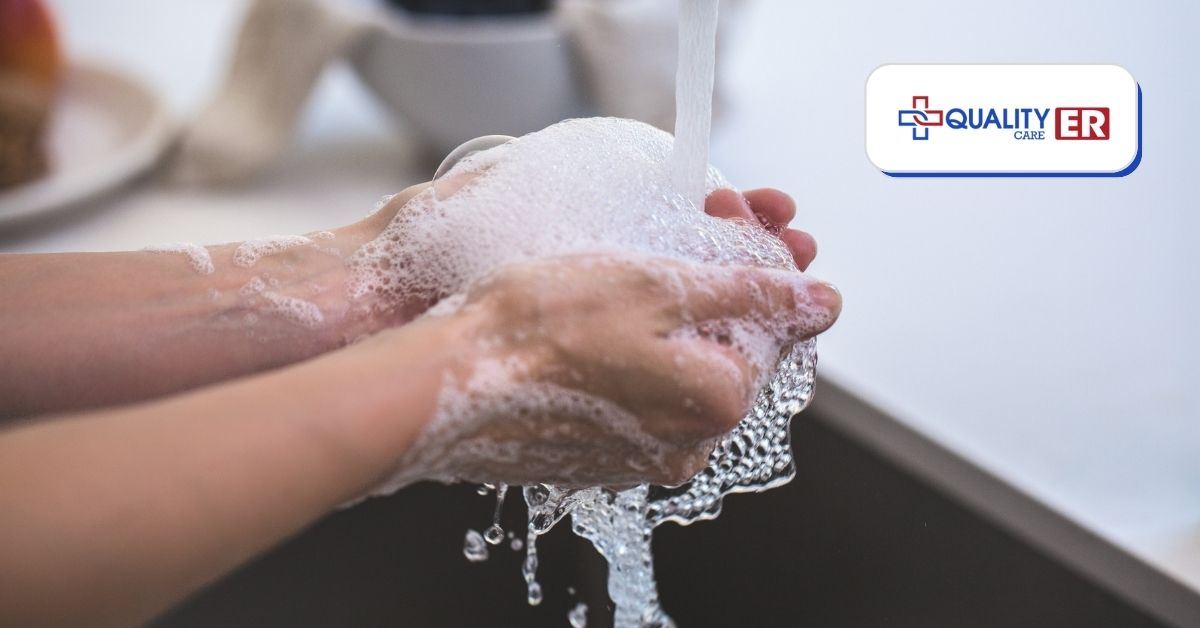Most People Don’t Wash Their Hands Right — Are You?
Though nearly 80% of communicable diseases are transferred by touch, 95% of people still wash their hands incorrectly. Still, some people don’t wash their hands at all after using the bathroom or before preparing food.
Keeping your hands clean prevents germs from spreading throughout your body, causing you to become sick. Keep reading to learn how to wash your hands the right way to prevent sickness.
When to Wash Your Hands
In the height of flu season and amid the COVID-19 pandemic, keeping your hands clean has never been so important. The seasonal flu isn’t the only virus that passes by touch and can cause you to become sick. Food-borne illnesses and bacteria can also pass through touch, as well as hand and foot disease and many diarrheal conditions.
The best way to prevent these conditions is to wash your hands when:
- Before and after preparing and eating food.
- After using the restroom.
- Before and after caring for someone who is sick.
- After touching an animal or animal food and waste.
- After blowing your nose.
- After touching garbage.
Proper Steps to Clean Your Hands
Some people use cold water to wash their hands, while others don’t use soap. Others rely solely on hand sanitizer — but all of these actions are incorrect. According to the CDC, these five tips should be followed whenever you wash your hand:
Wet your hands with clean, running water (warm or cold), turn off the tap, and apply soap.
- Lather your hands with soap and hot water — the back of your hands, between your fingers, and under your nails.
- Scrub your hands for at least 20 seconds.
- Rinse your hands well under hot water.
- Dry your hands using a clean towel or air dry them.
After washing your hands, you should avoid touching common touchpoints such as door handles. Instead, use a paper towel.
Flu Treatment in Quality Care ER
If you feel you've been exposed or are experiencing flu-like symptoms, stop in to Quality Care ER for proper treatment. For questions or concerns, contact our office at (903) 417-0886.



.jpg)

.jpg)